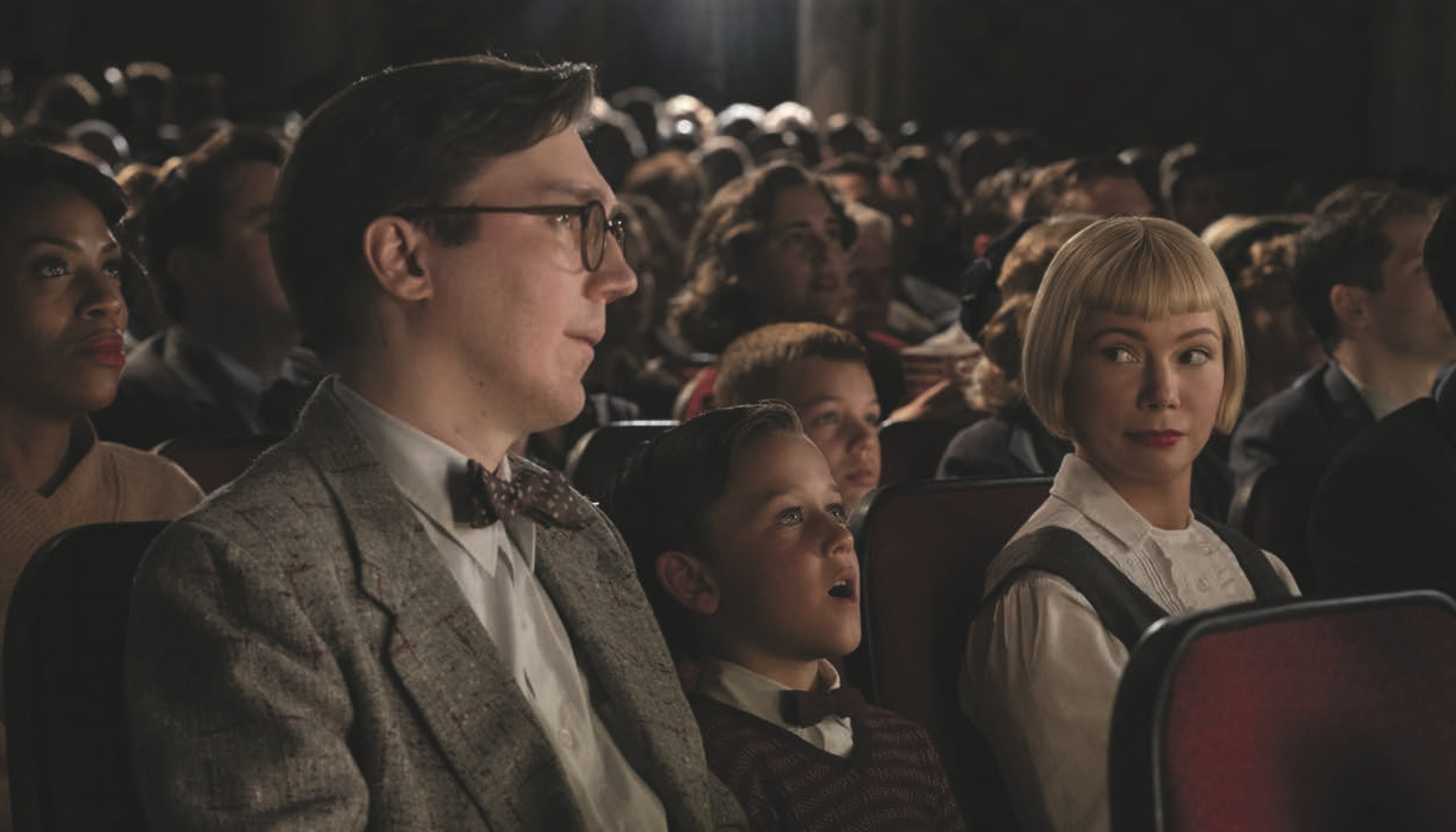It’s Steven Spielberg’s time. In the age of director origin stories (Roma, The Hand of God, Belfast, Armageddon Time), it was only a matter of time that maybe the world’s greatest director got to film his biography. Much like how Spielberg loves making movies, The Fabelmans shows how that love can manifest at an early age, and takes the audience along for the ride as we grow up with the boy who will change people’s lives with his amazing abilities to tell a story through film.
The minute Sammy (Gabriel LaBelle) sees The Greatest Show on Earth with his mom Mitzi (Michelle Williams) and dad Burt (Paul Dano) at the local theatre, the boy is hooked. Mitzi, sensing a kindred spirit in her son, gives him his first camera, where Sammy starts making movies with his sisters Reggie (Julia Butters) and Natalie (Keeley Karsten), and documenting family camping trips, with Burt’s best friend Bennie (Seth Rogen) tagging along. As Sammy gets older, he starts viewing his life through the films he makes, which delights mom but scares dad, who sees Sammy’s filming as a “hobby” he’ll eventually grow out of.
Early on, we see the internal dilemma plaguing Sammy via his parents. A living definition of opposites attract, Mitzi is very much a spontaneous art lover, who deferred her artistic ambition to raise a family, and Burt is the tech whiz pragmatist, fascinated by how things like 1950s version of computers work. After a hilarious encounter with his uncle Boris (Judd Hirsch), Sammy realizes he share’s Mitzi’s thirst for artistic expression, but also like is mother worries that that need will consume him, making him sacrifice his family for the sake of his art. Burt on the other hand, doesn’t understand how his son operates, but is always there to remind him how important family really is to Sammy via constant acts of service to make each Fabelman happy. As Sammy gets older, like all kids, he starts to see his parents as more complicated figures, forcing him to grow up earlier, and learn some hard truths about life as an adult. Because this is Spielberg’s life story, all of these lessons are learned and expressed from Sammy via the medium Spielberg loves: a movie. When Sammy finds it hard to express himself to his parents, he usually does so via a film, which, because Sammy’s got the best of both his parents, could tell his feelings better than any words Sammy would use.
So by the time Sammy and the Fabelmans move to California in his teen years, Sammy’s become his own person, living a life outside of Boy Scouts and family time, and without a movie camera for a hot second. The new move gets Sammy’s creative juices moving again, this time from his peers, both good and very, very bad. On the bleak side, he experiences anti-Semitism for the first time through the meanest kids at school, plus he’s too short and unathletic to do anything about it. Conversely, Spielberg/Sammy’s first girlfriend/love is truly an amazing character, Monica (Chloe East). Sammy’s first kiss is one of the funniest, weirdest, creepiest things Spielberg has done in a long time, and was probably equally embarrassing and cathartic to direct. In the end, Sammy experiences so many things and has grown so much as a person that the only way he can express them as is by going back to his calling: moviemaking, his real true love. By the time he gets to Hollywood (in an incredible ending), Sammy’s arc is already complete as a person, and he’s ready to handle whatever life throws his way through empathy, care, and a camera.
The pandemic clearly hit Steven Spielberg hard, which is when he wrote the Fabelmans. Only a born director could make his therapy a 2 hour movie meant to entertain audiences everywhere. Also, if I were directing my life story, I would also show how I was a moviemaking genius too, and how my Jewish boy good looks could attract all sorts of beautiful California Christian girls. You do you Steven, just keep churning out them hits!

